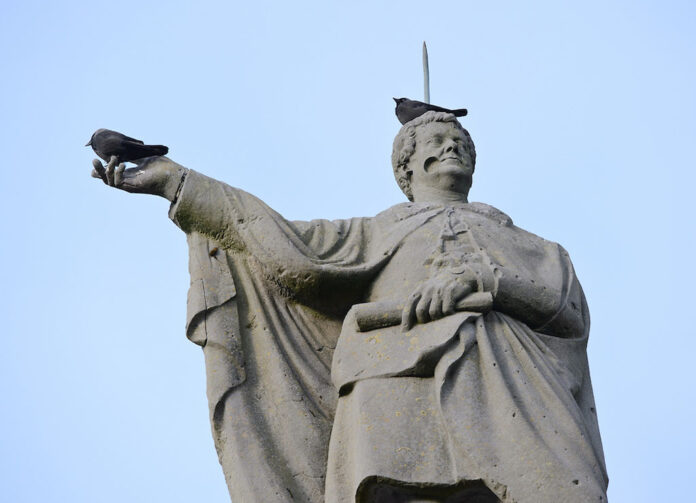WHAT criteria should be used to determine if a person is famous enough to be immortalised in County Clare?
That’s the question for Clare County Council, with plans revealed this week for the regulation of memorials amid fears of a “proliferation of plaques”.
A draft Memorial Policy for Clare County Council is currently being prepared by the local authority.
Cathaoirleach of Clare County Council James Breen had his say on the plans at this week’s meeting of Ennis Municipal District.
“Memorials should be erected only to people with unique achievements, or there will be memorials in every corner of the county,” he stated.
According to the draft document in relation to civic memorials, “A memorial is a lasting tribute to a person, persons or event. Therefore the council needs to be confident that the subject of the memorial is of sufficient importance that the reason behind the decision to approve a civic memorial will stand the test of time. It is therefore considered appropriate that the council will only generally consider commemorating persons who have been deceased for at least 10 years and events only after 20 years subsequent to taking place.”
Under the planned policy, a memorial committee will be set up to consider all requests and proposals for memorials and to make recommendations to the full council.
The committee will use a number of criteria to evaluate any proposals including that the subject of a civic memorial be of “county, national or international significance”.
The draft policy also includes details of management plans for community and family memorials and roadside memorials. In relation to community and family memorials, the draft policy covers commemorations of events or individuals who “have made a significant contribution to local heritage, culture and/or community development”, as well as those requested by families dedicated to departed family members or friends. In both of these areas, the council will accept contributions for benches or tree-planting.
The draft document’s policy on roadside memorials acknowledges the “sensitive nature” for those affected.
“The desire to erect a roadside memorial must be commensurate with the necessity to safeguard traffic safety, not create traffic hazard and general public sensitivities.”
The policy will not affect existing roadside memorials.
In outlining the reasons behind the policy, the draft states, “The council regularly receives enquiries regarding memorials to commemorate a person, persons or event. It is recognised by the council that memorials offer opportunities for the council, communities and families to celebrate, honour or remember a person, group of persons or event of significance. It allows the council to integrate important aspects of the county’s past culture and society into the present day and to raise awareness of the subject being commemorated among the public.
“At times, there are requests from the public for commemorative plaques to be located in the town’s public spaces. The council is concerned that the effect of this over a period of time could be a proliferation of plaques and other types of memorial in the county’s public spaces. For this reason, it is considered opportune to examine this issue and put a policy in place to ensure that the memorial process is managed and regulated for the mutual benefit of all.”
According to the council, the draft policy has been produced “to be respectful and sympathetic to those seeking to install a memorial”. It will ensure that there is permission from next of kin, that memorials are not out of place and “will not cause offence to others”.
By Jessica Quinn
A native of Ennis, Colin McGann has been editor of The Clare Champion since August 2020. Former editor of The Clare People, he is a journalism and communications graduate of Dublin Institute of Technology.



